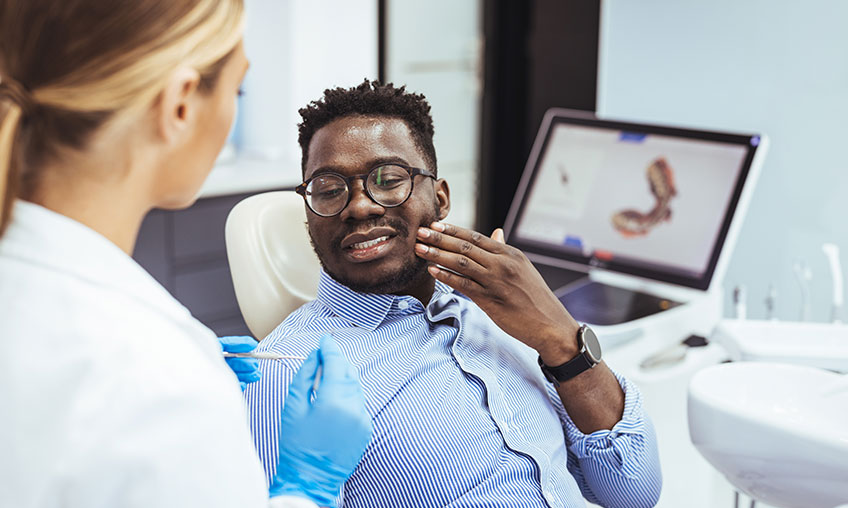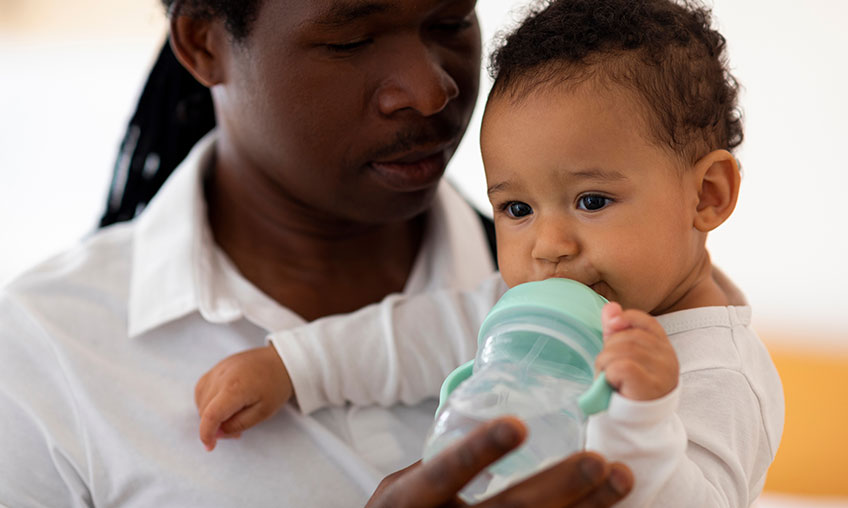
By Amber Bonnaig, DDS
Where you live, learn, work and play can affect your access to care and outcomes. These factors – the social determinants of health (SDOH) – influence whether individuals get the oral health care they want and need.
Education level is one such SDOH that can radically affect individual teeth and gum health. Lower educational attainment among American adults is associated with deficient oral health knowledge, leading to underutilization of oral health care services, according to BMC Oral Health. Furthermore, an inability to understand information received during a dental visit can result in poor compliance and missed appointments, according to the American Dental Association.
The numbers are stark. Adults with less than a high school education are almost three times as likely to have untreated cavities, compared to adults with at least some college education, according to the most recent HSS Oral Health Surveillance Report. And edentulation (complete tooth loss) is three times more likely in mature adults with less than a high school education compared to peers with more than a high school education.
Tools and Approaches to Improve Oral Health Literacy
Dental clinicians can help patients with lower education levels to avoid negative oral health outcomes.
Clear communication fosters oral health literacy. The ADA recommends starting from an empathetic standpoint, and using these techniques and tools:
- Teach-back
- Give simple, clear instructions
- Ask the patient to explain or demonstrate back what you just said
- If they have difficulty, try an explanation from a different angle and use examples
- Motivational, judgment-free engagement
- Ask the patient about potential barriers to changing behaviors
- Ask what they think they can change and then make a plan
- Document counseling in their record, and follow-up during the next visit
- Use visual aids for all ages
- Models and diagrams are helpful for children and adults
Your whole office can participate in improving oral health literacy to address educational SDOH. Use plain-language, easy-to-understand forms and signs. During an initial patient contact, ask about their preferred language and note it in their record; explain what to expect during the next visit; and assess translation needs and if the patient needs an interpreter.
Download these free guides to equip yourself and your practice to improve oral health literacy:
- Oral Health Literacy in Practice from the California Department of Public Health
- Health Equity Toolkit and Action Plan from the ADA
Dedicated to improving the oral health of all, DentaQuest, part of Sun Life U.S., is a purpose-driven organization that honors and supports the communities where we live and work.
Dr. Bonnaig, senior clinical dental consultant at DentaQuest, practices general and pediatric dentistry in Marietta, Georgia. A former faculty member at the University of Tennessee, Dr. Bonnaig earned her dental degree from Meharry Medical College in Nashville.

PREVENTISTRY PULSE
The newsletter designed for anyone who wants to improve oral health for themselves, their families, customers or communities.





